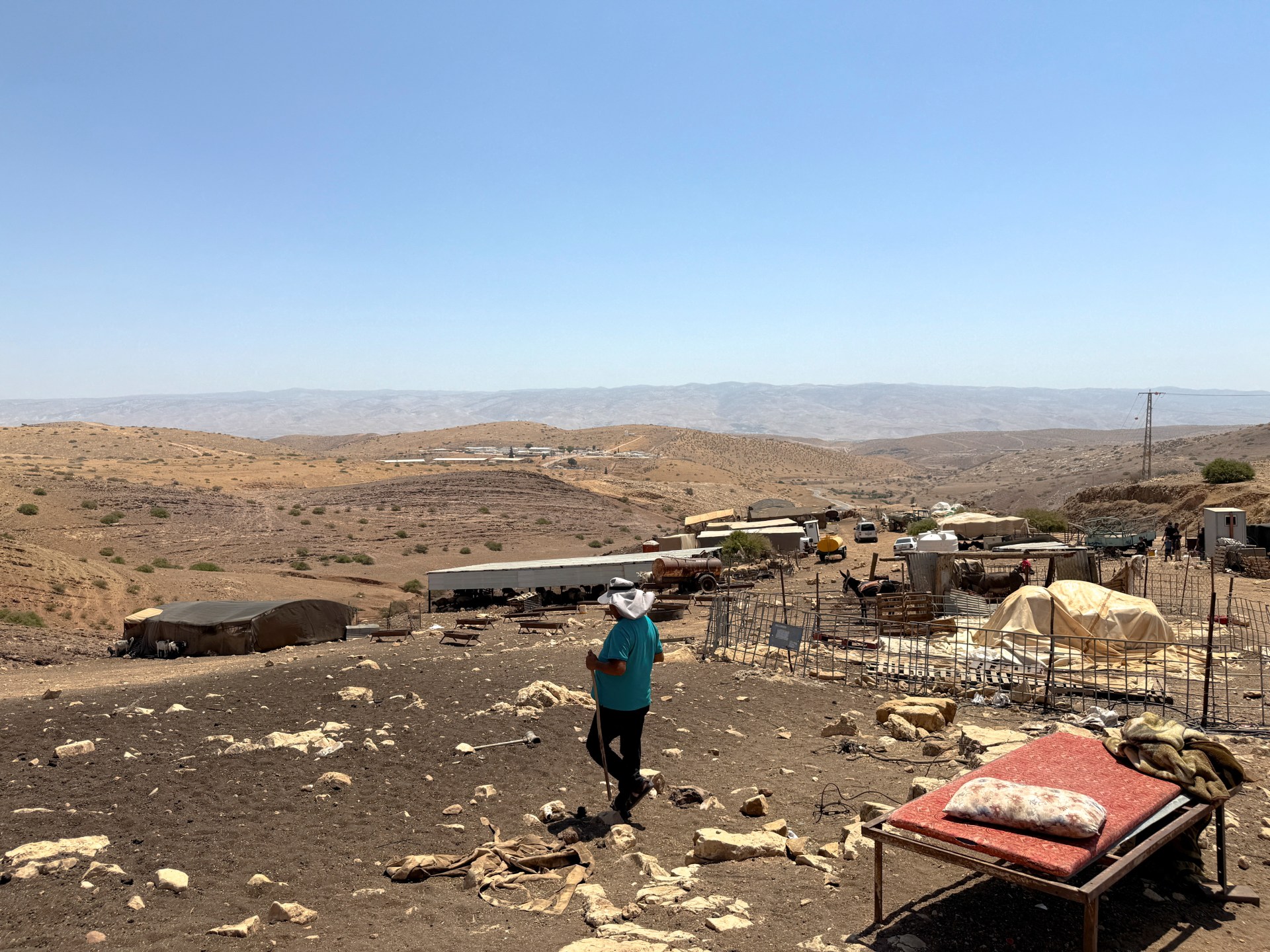The United States’s prestigious Columbia University has punished nearly 80 students who took part in protests against Israel’s war on Gaza with expulsions, one-to-three-year suspensions, and degree revocations.
The University’s Judicial Board stated on Tuesday that it had completed disciplinary hearings for the May 7, 2025, Butler Library demonstration on its campus and the May 31, 2024, “Revolt for Rafah” encampment during the university’s annual alumni weekend.
In 2024, pro-Palestinian student encampments at Columbia University became a flashpoint for a global wave of campus protests against Israel’s war in Gaza. The movement drew national attention before university administrators called NYPD officers to dismantle the camps, resulting in dozens of arrests.
“Suspension from Columbia for protesting genocide is the highest honour,” said Columbia University Apartheid Divest (CUAD), an umbrella coalition of student groups, in a post on X.
“We reject that Columbia has any reputation worth upholding and we categorically state that we do not wish to uphold it,” the student body said.
So, why has Columbia expelled these students? And why has the Trump administration clamped down on universities?
What has happened?
Columbia University has disciplined nearly 80 students for their participation in pro-Palestinian protests – to “separate them from the University”.
The disciplinary action follows a series of demonstrations on campus, including a student-led occupation of Butler Library during final exams on May 7 earlier this year.
The NYPD arrested 78 individuals that day. The protests are part of a call for the university to divest from companies linked to the Israeli military, cut all financial ties with Israel, and express solidarity with Palestinians amid the continuing war in Gaza.
According to student organisers, the suspended students took part in a “peaceful teach-in” which included readings and discussions about Palestinian writer and activist Basil al-Araj, killed by Israeli forces in 2017.
The mass disciplinary action, described as the biggest of its kind in Columbia’s history, has sparked backlash from civil liberties groups and fellow students.
Organisers argue the crackdown is part of a broader effort to suppress pro-Palestinian activism on US campuses and have linked it to a pending agreement between Columbia and Trump administration officials.
The University’s student newspaper, Columbia Spectator, reported that the majority of students received a two-year suspension. The students have reportedly been asked to apologise to the university before they can be allowed to return to campus.
Earlier this year, the Trump administration announced it would withhold approximately $400m in funding for Columbia University, citing the institution’s alleged failure to adequately address anti-Semitism amid pro-Palestinian protests on campus.
That move prompted Columbia to concede to a list of demands laid down by the government in return for negotiations to reinstate its funding. Among other concessions, the university agreed to ban face masks and to empower 36 campus police officers with special powers to arrest students.

What has Columbia said?
In a statement published on Tuesday, the University stated that the disruption at Butler Library during reading period had affected hundreds of students and subsequently led to the interim suspension of Columbia participants.
The University said sanctions would include probation, suspensions ranging from one year to three years, degree revocations, and expulsions.
It did not state how many faced each of these sanctions, nor did it reveal any of the students’ identities, citing student privacy.
“Our institution must focus on delivering on its academic mission for our community. And to create a thriving academic community, there must be respect for each other and the institution’s fundamental work, policies, and rules,” the statement noted. “Disruptions to academic activities are in violation of University policies and Rules, and such violations will necessarily generate consequences.”
How have students responded?
News of the suspensions and expulsions came on the same day that Mahmoud Khalil, the Columbia University protest leader targeted for deportation by President Donald Trump, met with lawmakers in Washington, DC, just over a month after the 30-year-old, a legal permanent resident of the United States, was released from immigration custody in Louisiana.
Khalil continues to face deportation under the Trump administration, which has relied on an obscure provision of the Immigration and Nationality Act of 1952 in its attempts to expel international students involved in pro-Palestinian advocacy.
In response to the suspensions and expulsion announced by Columbia on Tuesday, the student activist group Columbia University Apartheid Divest (CUAD), an umbrella coalition of student groups, noted that while “the US and Israel starve 2.1 million Gazans to death, Columbia has worked diligently with [Trump’s administration] to suspend dozens of students for pro-Palestine activism”.
The group noted the suspensions were the highest ever for a single political protest in Columbia’s history and “hugely exceed sentencing precedent for teach-ins or non-Palestine-related building occupations”.
“Students remain committed to ending US- and Columbia-backed Israeli genocide regardless of the school’s sanctions,” the student body said in its statement.
Quoting a testimony from students’ July disciplinary hearings, the group reiterated: “Every university in Gaza has been destroyed. Hundreds of academics have been killed. Books and archives have been incinerated. Entire families have been erased from the civil registry. This is not a war. It is a campaign of erasure.”
“We will not be deterred. We are committed to the struggle for Palestinian liberation,” the statement quoted students in conclusion.

Why has Trump clamped down on universities?
The antiwar protests against Israel’s war on Gaza, which spread across US university campuses from Columbia and UCLA to Harvard, last year have drawn comparisons with the anti-Vietnam War era, when student activism directly challenged US foreign policy.
Trump has capitalised on this by painting students as part of a left-wing, anti-Semitic revolt and clamping down on universities, particularly “elite” institutions.
The administration argues that universities have failed to protect Jewish students from harassment and violence during demonstrations, citing incidents of encampments and chants deemed anti-Semitic.
Since early 2025, the administration has targeted more than 50 universities, including Columbia, with investigations by the Department of Education’s Office for Civil Rights.
This has been coupled with executive orders and actions, such as freezing billions in federal research grants and threatening to revoke tax-exempt status or accreditation, as seen in demands placed on Harvard and Columbia.
Harvard’s rejection of demands that its programmes be audited for “ideological capture” led to billions of dollars in federal funding being frozen. The administration also threatened to bar international students from Harvard, citing “national security” and high campus crime rates, which underscores the White House’s chokehold over the universities.
Harvard has sued the administration and secured a federal judge’s temporary block on the order to bar international students.
The policies under the Trump administration also reflect its general opposition to perceived liberal biases in higher education, as it aims to dismantle “woke” culture and promote conservative values. It has also targeted diversity, equity, and inclusion (DEI) programmes operated by universities and other workplaces, accusing them of promoting division and “reverse discrimination”.




Leave a Comment